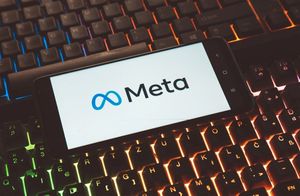
TOKYO, May 10, 2022 - (JCN Newswire) - Eisai Co., Ltd. today announced that it has initiated preparation on a New Drug Application for ultrahigh-dose mecobalamin (development code: E0302) for amyotrophic lateral sclerosis (ALS) in Japan, based on a favorable clinical results of the JETALS (The Japan Early-Stage Trial of Ultrahigh-Dose Methylcobalamin for ALS: JETALS), an investigator-initiated Phase III trial to evaluate efficacy and safety of ultrahigh-dose methylcobalamin (mecobalamin) in early onset ALS patients, published by a research team led by Extraordinary Professor Ryuji Kaji (Principal Investigator), Tokushima University and Professor Yuishin Izumi (Coordinating Investigator), the Department of Neurology, Tokushima University Graduate School of Biomedical Sciences. Eisai submitted an application for an orphan drug designation of this agent to the Ministry of Health, Labour and Welfare (MHLW) in March 2022, and plans to submit a new drug application in fiscal year 2023.
For ultrahigh-dose mecobalamin, Eisai submitted a new drug application as treatment for ALS in May 2015 based on the results of a Phase II/III clinical trial (Study 761) for ALS, but withdrew the application in March 2016 after receiving the opinion about the application package not being sufficient from the Pharmaceuticals and Medical Devices Agency (PMDA).
However, an additional analysis of Study 761 suggested that ultrahigh-dose mecobalamin prolonged survival period and suppressed progression in ALS patients who commenced treatment within 12 months of ALS onset. In order to re-examine its efficacy and safety in ALS patients within 1 year of onset, JETALS was conducted as an investigator-initiated clinical trial by the research team led by the Tokushima University with the support of the Japan Agency for Medical Research and Development (AMED). The results of the study showed the efficacy, safety, and tolerability of ultrahigh-dose mecobalamin, which have now been published in the peer-reviewed journal JAMA Neurology(New Window). Based on the results of JETALS, in consultation with the Tokushima University, Eisai has decided to newly submit the application for approval of ultrahigh-dose mecobalamin for ALS in Japan.
Eisai considers neurology a therapeutic area of focus and is committed to new drug development in this field in order to fulfill unmet medical needs and further contribute to increasing the benefit for patients and their families.
About Amyotrophic Lateral Sclerosis (ALS)
ALS is an intractable, progressive, neurodegenerative disease that results in severe muscle atrophy and weakness in the muscles due to motor neuron dysfunction. As the main cause of death is respiratory failure due to paralysis of the respiratory muscles, without the use of an artificial respirator, death occurs within approximately 3 to 6 years from the onset of the disease. According to the number of patients issued a Certificate of the Recipient of Specified Disease Treatment, there were 10,514 patients with ALS in Japan in 2020. Currently, there is no curative treatment established for ALS, and since there are only limited number of medicines approved in Japan and abroad, this is a disease with significant unmet medical needs.
About Mecobalamin
Mecobalamin (development code: E0302) is approved and marketed as Methycobal, a 500 microgram injection of mecobalamin indicated for the treatment of peripheral neuropathies and megaloblastic anemia caused by vitamin B12 deficiency. Methycobal is also approved as a tablet formulation as well as a fine granule formulation indicated for the treatment of peripheral neuropathies. While the mechanism of action of mecobalamin in ALS is not known, it has been suggested in non-clinical research that mecobalamin may have efficacy through a neuroprotective effect and regeneration of nerve axons. Since the 1990s, clinical research has been carried out on ultrahigh-dose mecobalamin in ALS by a study group on neurodegenerative disease, funded through the Ministry of Health, Labour and Welfare's Specified Disease Treatment Research Program. Short- and long-term trials of intramuscular injection of mecobalamin at 25 mg and 50 mg per day, which is respectively 50 and 100 times the approved dosage of Methycobal, suggested that ultrahigh-dose mecobalamin could have a clinical effect in ALS.Therefore, Eisai had conducted the Phase II/III clinical trial (Study 761) since 2006 and submitted a new drug application for ultrahigh-dose mecobalamin as treatment for ALS in May 2015 but withdrew the application in March 2016 after the Pharmaceuticals and Medical Devices Agency (PMDA) indicated that additional clinical trials were necessary.
Media Inquiries:
Public Relations Department,
Eisai Co., Ltd.
+81-(0)3-3817-5120
Copyright 2022 JCN Newswire. All rights reserved. www.jcnnewswire.com





